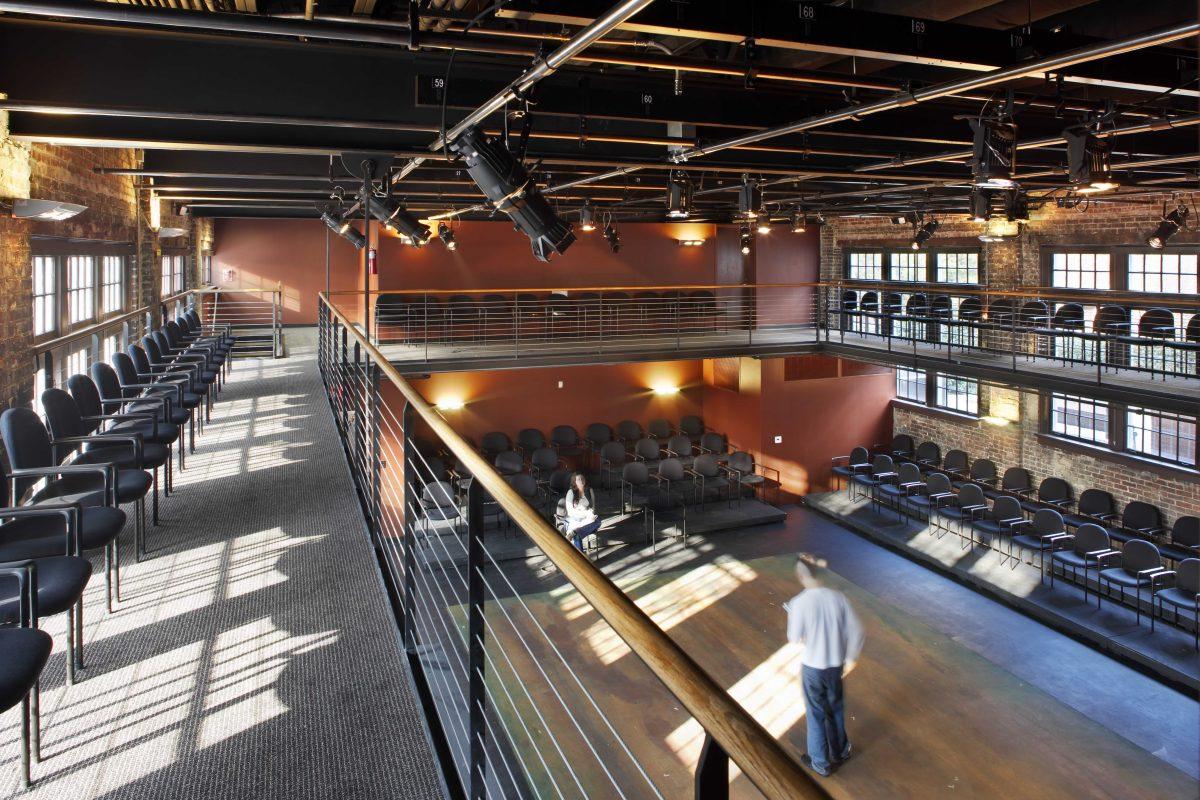For decades, theatres such as the Durham Performing Arts Center and Raleigh Memorial Auditorium have garnered drawn shows straight from Broadway every year, but Raleigh-born-and-raised theatre companies are proving that they can hold their own, too.
Three theatre companies stand out between downtown and N.C. State’s campus: Raleigh Little Theatre, Burning Coal Theatre and Theatre in the Park. Each is comprised of Triangle performers who stage seasonal shows.
Kathleen Rudolph, associate director of RLT, discussed the impact of this community and how it continues to thrive.
“We are a community theatre in the true sense of the word,” said RLT Associate Director Kathleen Rudolph. “We are here for the community–they are our patrons, but also our volunteers. Without them we could not do what we do. We love to teach new folks how to build, paint, sew, run lights, run sound, hang lights, house manage and anything else that we need help with.”
Since its establishment in 1935, RLT has been a place where children and adults of all ages could learn and develop anything from acting and playwriting skills to technical theatre disciplines. Despite being the only theatre in town at the time, North Carolina now has more than 30 companies that continue to thrive in spite of the nation’s economic struggles.
Nevertheless, Rudolph acknowledged that the world of theatre still faced significant challenges.
“The problems we face are filling seats,” Rudolph said. “With all the options out there, folks make choices. Advertising dollars are sparse, so it is sometimes difficult to get the word out.”
Ira David Wood III, executive director of Theatre in the Park, said his company runs into some common obstacles.
“Because our place selection is so varied, we have to make certain that our audiences are given thorough information regarding each production,” Wood said. “Older audiences, for instance, seem to have some difficulty with language, especially the overuse of profanity.”
But Wood said the purpose of theatre goes beyond selling tickets and pleasing the audience.
“Teaching is about creative communication—so is good theatre,” Wood said. “The educational process has a great deal in common with theatre. Our theatre has a history of conducting workshops for teachers as well as inviting school groups to open rehearsals, discussions, as well as productions.”
Jerome Davis, a representative for Burning Coal Theatre, said theatre arts are an important part of the community.
“We try to do plays that challenge the audience to think for themselves, that attempt to grip the audience, to move it emotionally and intellectually, and finally that lead our audiences to get out of their seats and act,” Davis said. “Great plays aren’t about the average day. They are about the extraordinary day, and about the extraordinary decisions that have to be made during hinge moments in a person’s life.”
Each company has featured high school and college students in past productions, and all of them to do so. Linda O’Day Young, an associate director for RLT, said theatre participation’s advantages go beyond the joy of performance.
“I am passionate about the importance of Theatre Arts Education,” O’Day Young said. “It’s not a frivolous luxury; it is a necessity. It invites students to seek, explore and discover themselves. It enables them to see possibilities. It teaches skills that can be applied to everyday life so that those possibilities can become a reality.”
Davis said that theatre shouldn’t strive to compete with movies, TV or the Internet. Instead, he said, theatre should make the most of its strengths.
“The one thing theatre can do that they can’t is to engage your imagination,” Davis said. “A developed imagination leads to creative, abstract thinking. That is precisely the thing most needed in our highly competitive world.”








